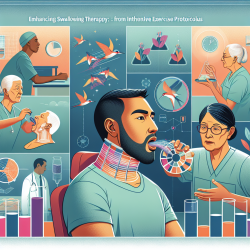Introduction
In the field of speech-language pathology, creating optimal outcomes for children often involves understanding the broader contexts that impact their health and well-being. Recent research, such as the study on U.S. state policy contexts and mortality of working-age adults, offers valuable insights into how state-level policies can influence health outcomes. While this study primarily focuses on adult mortality, its implications can be extended to inform practices in child therapy, particularly in online therapy services like those provided by TinyEYE.
Understanding the Research
The study by Montez et al. (2022) investigates the relationship between state policies and mortality rates among working-age adults. It highlights how more liberal policies in areas such as the environment, gun safety, labor, economic taxes, and tobacco taxes are associated with lower mortality rates. Conversely, more conservative marijuana policies are linked to reduced mortality. These findings suggest that state policy contexts significantly impact health outcomes, which can be leveraged to enhance child therapy practices.
Implications for Child Therapy
For practitioners in speech-language pathology, understanding the broader policy environment can inform therapeutic strategies and advocacy efforts. Here are some ways to integrate these insights into practice:
- Advocacy for Supportive Policies: Engage in advocacy efforts to promote policies that support child health and development. This includes advocating for environmental protections and labor policies that indirectly benefit children's well-being.
- Holistic Assessment: Consider the state policy context when assessing a child's needs. Policies affecting parental employment, healthcare access, and environmental quality can influence a child's development and therapy outcomes.
- Collaborative Efforts: Collaborate with other professionals and organizations to address policy-related barriers to effective therapy. This could involve partnerships with educational institutions or healthcare providers to enhance service delivery.
Encouraging Further Research
The study underscores the importance of macro-level influences on health outcomes, encouraging practitioners to consider these factors in their research and practice. Speech-language pathologists can contribute to this growing body of research by exploring how state policies specifically impact child health and development. This could involve examining the effects of educational policies, healthcare access, and family support systems on therapy outcomes.
Conclusion
Understanding the interplay between state policies and health outcomes is crucial for enhancing child therapy practices. By integrating insights from research on state policy contexts, practitioners can make informed decisions that improve therapy outcomes for children. For those interested in delving deeper into this topic, I encourage you to read the original research paper, U.S. state policy contexts and mortality of working-age adults.










